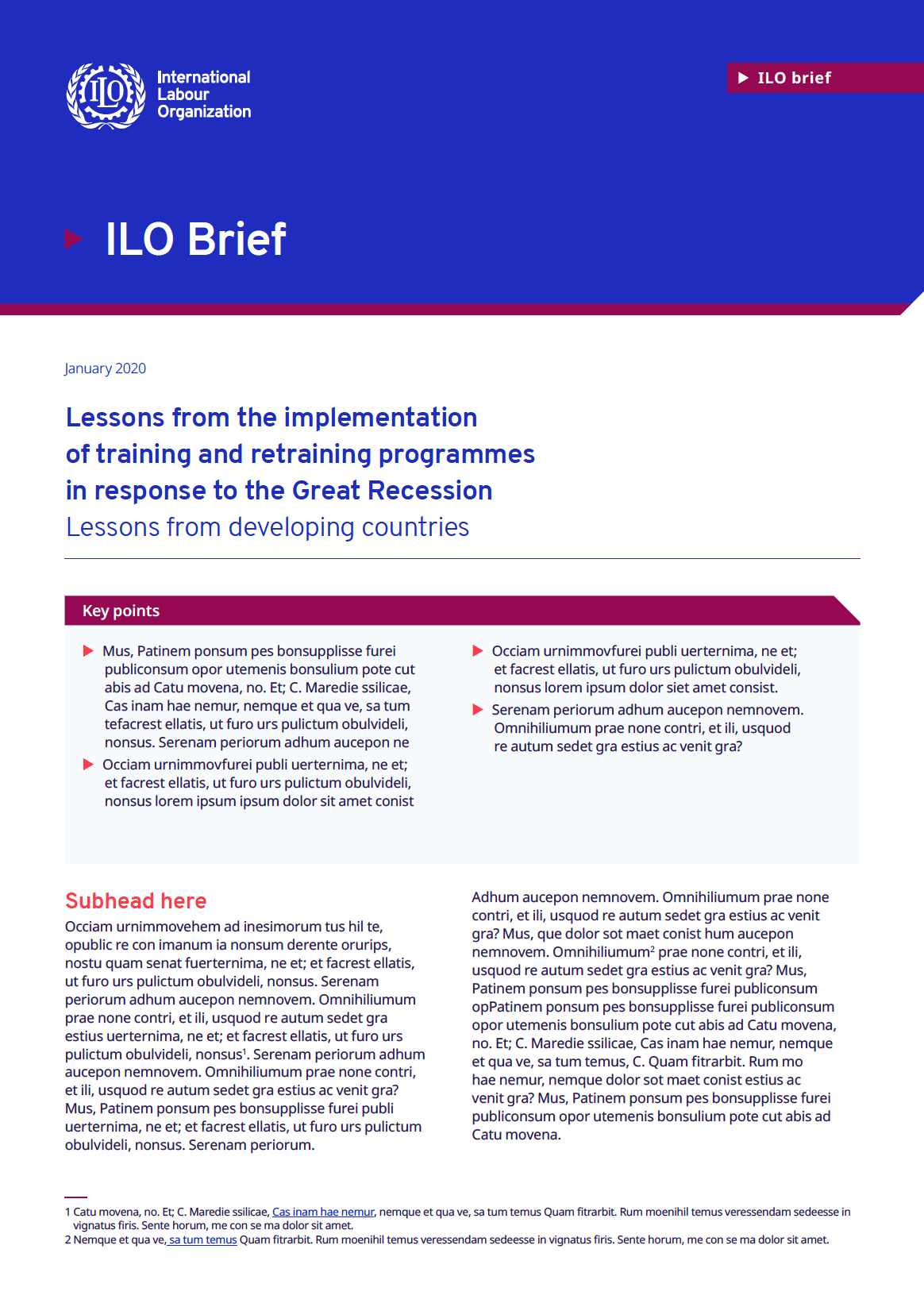Mongolie
Document
Jobs and skills for youth: Review of policies for youth employment of Mongolia
Date de publication:
13 juil. 2017
Source:
OIT
Young Mongolians continue to experience difficulties in their journey towards the labour market. The 2014 labour force data reveals an unemployment rate of 17.4 per cent among young people. Many young Mongolians also experience a lengthy period of unemployment before finding a job. For those who are in work, many young people are often found in the informal economy, which absorbs over 90 per cent of rural working youth and nearly one- third of urban youth. There is also evidence that despite greater educational attainment by young women, their prospects in the labour market remain limited. Moreover, young women often have lower wages and higher levels of occupational segregation than young men. Nonetheless, young men are also at risk. Young men from rural communities are more likely to enter the labour market early and thus face a long-term trajectory of informal and low-paid jobs.
These weak employment outcomes are all the more striking since they persisted even during previously substantial economic growth rates. This report has been developed to try to shed light on these difficult transitions to the labour market by examining the policy environment, identifying gaps and proposing recommendations to support Mongolian efforts to improve the employment prospects of its young people.
These weak employment outcomes are all the more striking since they persisted even during previously substantial economic growth rates. This report has been developed to try to shed light on these difficult transitions to the labour market by examining the policy environment, identifying gaps and proposing recommendations to support Mongolian efforts to improve the employment prospects of its young people.
Document
Gender, jobs and education: prospects and realities in the Asia-Pacific
Date de publication:
11 mai 2016
Source:
Organisations internationales
This report provides insights into how sociocultural factors, labour market trends and education policies influence the career perspectives and choices of young people in the Asia-Pacific region.
The report focuses on the findings from research conducted in five countries: Cambodia, Indonesia, Mongolia, Nepal and Viet Nam. Along with these findings, the report also provides reflections and policy recommendations to improve gender equality in the countries selected for the study and beyond.
The report focuses on the findings from research conducted in five countries: Cambodia, Indonesia, Mongolia, Nepal and Viet Nam. Along with these findings, the report also provides reflections and policy recommendations to improve gender equality in the countries selected for the study and beyond.
Document
Compilation of assessment studies on technical vocational education and training (TVET): Lao People’s Democratic Republic, Mongolia, the Philippines, Thailand and Viet Nam
Date de publication:
14 mars 2016
Source:
OIT
This publication is a compilation of assessment studies on technical vocational education and training (TVET) development in Lao People’s Democratic Republic, Mongolia, the Philippines, Thailand and Viet Nam. It provides a critical analysis and assessment of the current state of skills development and TVET as well as reviews past and current policies, strategies, programmes and trends, and implications to the country’s socio-economic development and employment in these countries. Recommendations are made in identifying future skills and occupations needed given current and future employment levels.
Document
School-to-work-transitions in Mongolia
Date de publication:
19 févr. 2016
Source:
OIT
To assist member States in building a knowledge base on youth employment that helps better and informed policy-making, the ILO has designed a methodology referred to as a “School-to-Work Transition Survey” (SWTS). The SWTS is developed to quantify the relative ease or difficulty faced by young people in “transiting” to a job that meets the basic criteria of “decency”, namely a job that provides the worker with a sense of permanency, security and personal satisfaction.
This paper presents the results of the SWTS conducted in Mongolia between October and December 2006. It seeks to measure the quality of the transition to decent work. It captures the labour market status of young people, the different types of transitions leading to work and provides information on both quantity and quality of employment. The study also incorporates the results of an employers’ survey that enriches the analysis with data concerning labour demand.
This paper presents the results of the SWTS conducted in Mongolia between October and December 2006. It seeks to measure the quality of the transition to decent work. It captures the labour market status of young people, the different types of transitions leading to work and provides information on both quantity and quality of employment. The study also incorporates the results of an employers’ survey that enriches the analysis with data concerning labour demand.


